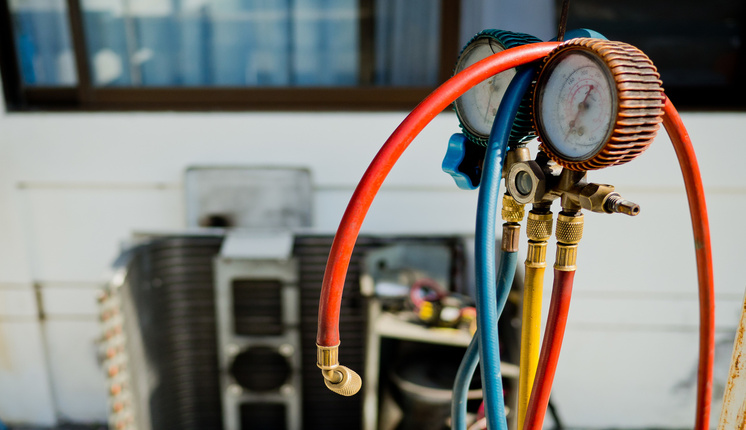
Understanding HVAC and air conditioning systems is crucial for managing your home’s climate. These systems do more than just heat or cool your space—they also ensure the air you breathe is healthy all year. Whether you’re considering upgrading or learning the basics, this guide will explain what is the Difference Between HVAC and Air Conditioning. It will help you choose the right system by explaining its parts and how they work. By the end, you’ll know how these systems work together to keep your indoor environment comfortable and efficient.
What is HVAC?
HVAC stands for Heating, Ventilation, and Air Conditioning. It’s like a multitasking tool for your home’s comfort. HVAC does more than just heat or cool your home—it also keeps the air clean and fresh. Imagine it as a smart wizard that controls the temperature and humidity indoors. Whether warming up during winter or staying cool in summer, HVAC systems manage everything from heating units to air vents, all controlled by a thermostat. Essentially, HVAC ensures your home stays comfortable and cozy throughout the year, no matter the weather outside.
Components of an HVAC System
An HVAC system consists of several key components:
-
Heating Unit: This can be a furnace, heat pump, or boiler that generates heat.
-
Ventilation System: Includes ductwork, vents, and fans that circulate and exchange indoor and outdoor air.
-
Air Conditioning Unit: Typically, a central air conditioner or a ductless mini-split system that cools the air.
-
Thermostat: Controls the temperature and operation of the HVAC system.
Understanding Air Conditioning
Understanding air conditioning involves grasping how these systems effectively cool indoor spaces, creating comfortable environments, especially in warm weather. Air conditioning operates on the principle of refrigeration, where a special fluid called refrigerant absorbs heat from indoor air, cycles it outside, and then releases it, resulting in cooler air circulating indoors. This process is crucial for maintaining optimal indoor temperatures and humidity levels, improving comfort and productivity. Modern air conditioning systems come in various types, from central units that distribute cooled air through ducts to ductless mini-split systems offering targeted cooling. Choosing the right air conditioning system depends on space size, energy efficiency, and specific cooling needs.
How Air Conditioning Works
Air conditioners use a refrigeration cycle to cool indoor air. Here’s a simplified breakdown:
-
Evaporation: Refrigerant (a special fluid) evaporates at a low temperature inside the indoor coil.
-
Compression: The evaporated refrigerant is compressed into a hot gas.
-
Condensation: The hot gas releases heat as it condenses into a liquid state in the outdoor coil.
-
Expansion: The liquid refrigerant expands and evaporates again, repeating the cycle.
Types of Air Conditioning Systems
-
Central Air Conditioning: Uses ducts to distribute cooled air throughout the building.
-
Ductless Mini-Split Systems: Provides targeted cooling to specific rooms without ductwork.
-
Window Units: Compact air conditioners installed in windows for individual rooms.
Key Differences Between HVAC and Air Conditioning
While air conditioning is a component of HVAC, the primary difference lies in their scope:
-
HVAC: Includes heating, ventilation, and air conditioning components, providing comprehensive climate control.
-
Air Conditioning: Focuses solely on cooling indoor air, though it’s often used interchangeably with HVAC in colloquial terms.
Benefits of HVAC Systems
Choosing an HVAC system offers several advantages:
-
Year-Round Comfort: HVAC systems provide heating and cooling capabilities, ensuring comfort in all seasons.
-
Improved Air Quality: They incorporate filters that remove dust, allergens, and pollutants from indoor air, promoting healthier breathing environments.
-
Energy Efficiency: Modern HVAC units are designed to be energy-efficient, helping to reduce utility bills compared to older systems.
-
Consistent Temperature Control: HVAC systems maintain a consistent indoor temperature, adjusting automatically to weather conditions.
-
Enhanced Humidity Control: They regulate humidity levels, preventing excessive moisture in the air, which can lead to mold growth and discomfort.
Choosing the Right System for Your Needs
Choosing the right HVAC system for your needs requires careful consideration of several factors:
-
Size of the Space: Determine the square footage of the area you need to heat or cool. An HVAC system that is too small won’t adequately heat or cool the space, while one that is too large may cycle on and off frequently, wasting energy.
-
Energy Efficiency: Look for systems with high SEER (Seasonal Energy Efficiency Ratio) ratings for air conditioners and AFUE (Annual Fuel Utilization Efficiency) ratings for furnaces. Higher ratings indicate better energy efficiency and lower operating costs.
-
Climate Considerations: Consider your local climate. In hot climates, prioritize efficient air conditioning systems; focus on effective heating solutions in colder climates.
-
Budget: Determine your budget for upfront costs, installation, and ongoing maintenance. Balance initial investment with long-term energy savings and operational costs.
-
Consultation with Professionals: Seek advice from HVAC professionals. They can assess your needs, recommend suitable systems, and ensure proper installation for optimal performance and efficiency.
Conclusion
Understanding the difference between HVAC and air conditioning systems is essential for making informed decisions about your indoor comfort. While air conditioning focuses on cooling, HVAC systems encompass a broader range of functions, including heating and ventilation. For expert advice and installation services in Martinsburg, trust Techstar Mechanical Services to ensure your home or business remains comfortable throughout the year. By grasping these distinctions, you’re better equipped to choose the right system that meets your needs effectively and efficiently. Whether you opt for comprehensive HVAC solutions or specific air conditioning units, maintaining indoor comfort is within reach with the right knowledge and professional guidance.



